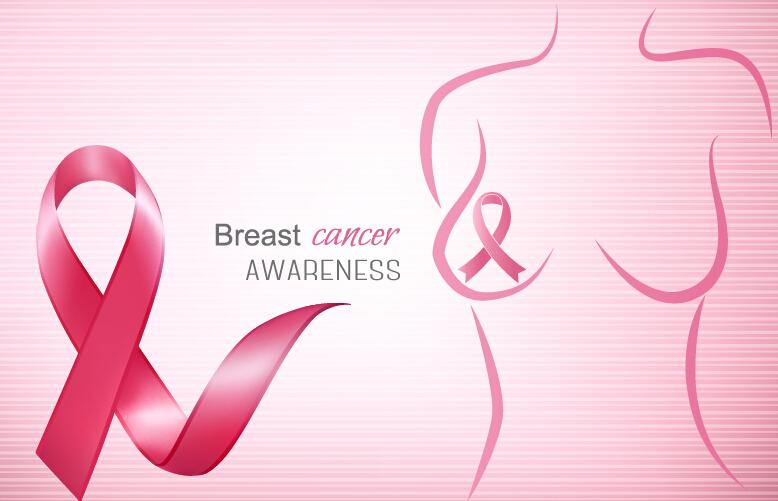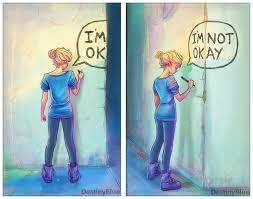Breast Cancer
By Dr. Kanchan Harjwani | April 22, 2016

This article answers what is breast cancer? How can I prevent breast cancer? What are the symptoms of breast cancer? Is breast cancer curable?
This article help you find facts about breast cancer and everything related to it with some helpful tips. Cancer has a major impact on society all over the world. Breast cancer is one of the common cancer which is widely diagnosed these days and is matter of great concern. Ratio of cancer in developed country is more than a developing country due to lifestyle and many other factors. Breast cancer is common in females, it can be rarely seen in males.
As in all types of cancer, there is body's own cells which multiply abnormally and out of control. Same is with breast cancer, abnormal tissue is made up of patients own cells which are multiplied out of control. When they start spreading to other parts of the body where they are abnormally present, that cancer is called metastatic or advanced stage of cancer. Breast cancer primarily develops in breast tissue in the milk ducts which is called as ductal carcinoma or it may develop in glands which is called as lobular carcinoma.
Breast cancer starts to form in small confined tumor (lump like) or as calcium deposit (micro-calcification) and it is spread through channels in the breast to the lymph nodes and by lymph nodes or bloodstream they spread it to other organs in the body. The tumor may grow and may involve tissue around the breast such as skin or chest wall. The spread of cancer varies with type of cancer, some grow and spread quickly while other require years to spread away from breast.
If detected at early stage breast cancer is treatable with good prognosis. Tumor which is localized can be treated successfully before cancer spreads to other parts. And in maximum cases women will live at least for another five years but recurrences of breast cancer are also commonly seen.
Once cancer starts to spread in other parts of the body it become difficult to treat but it can be controlled for years.
Essential support for awareness of breast cancer and research funding has helped improve the screening and diagnosis and advances in the treatment of breast cancer. Survival rates in Breast cancer have increased recently, and the deaths due to this has been declining steadily, which is mostly due to factors like earlier detection, an advanced personalized approach to the treatment and also an better understanding of the disease.
What causes cancer? What are risk factors of cancer?
Exact cause of breast cancer is still not known, but there are many risk factors which may cause cancer.
● Age: Women of older age are at more risk to develop cancer, more the age higher is the risk factor. Maximum cases seen are above the age 45 years.
● Genetics: women having mother or sister suffering from this are more prone to get breast cancer. But it is not true for all, experts estimate it may be 5 to 10% chances of inheriting it from family. If you have a strong family history of breast cancer or other cancers, your doctor may recommend a blood test to help identify specific mutations in BRCA or other genes that are being passed through your family.
● Past history of breast cancer: chances of having breast cancer are more in the female who already had suffered from this before.
● History of Breast lumps: women who had benign (non-cancerous) breast lumps in past are also at high risk to develop breast cancer later.
● Exposure to estrogen for long time: women who have started their periods early and menopause late are at high risk of breast cancer as they have long time exposure to estrogen. Exposure to estrogen starts with start of period and reduce remarkably in the menopause.
● Obesity: females who are obese in post-menopausal period are at high risk of developing breast cancer.
● Alcohol consumption: women who drink alcohol regularly have high chance of developing cancer.
● Hormone replacement therapy: women who had undergone hormone therapy and combined estrogen therapy are at higher risk of developing cancer.
● Previous chest radiation: women who had undergone radiation therapy for another cancer in the chest area at early age during adolescence when breast were still developing are at high risk of developing cancer. It varies with age, radiation treatment given after age of 40 year doesn’t seem to increase the risk of cancer.
Signs and Symptoms of breast cancer:
It is very unfortunate that in early stage of cancer usually do not show any symptoms, it is generally after the tumor develops you may see following changes.
A lump is felt in underarm or in breast after your menstrual cycle. These lumps which are associated with breast cancer are usually painless or sometime prick like sensation may be seen. This is the first symptom of breast cancer. Lumps can be seen in mammogram even long before it can be felt.
● There is swelling in the armpit due to lymph nodes inflammation.
● There may be pain or tenderness (pain on touching) in the region of breast. Breast lumps are usually painless, but pain or tenderness can be a sign of breast cancer.
● A remarkable flattening or depression on the breast, may indicate a tumor that can’t be seen or felt.
● Any changes in the size of breast, shape, texture, or temperature of the breast. A reddish, pitted surface like peel of an orange can be a sign of advanced stage of breast cancer.
● Changes in the nipple, like retraction of nipple, dimpling nipple, burning or itching like sensation or ulceration. Rashes which are scaly on nipple is symptom of Paget's disease, which may be linked to underlying breast cancer.
● Unusual discharge from the nipple. It can be due to benign or due to cancer.
● Difference in the skin from other parts of the body.
Prevention of breast cancer:
Some changes in lifestyle can help women reduce the risk of developing breast cancer.
● No Alcohol consumption: women who drink in moderation, or do not drink alcohol at all, are less likely to develop breast cancer.
● More Physical activity - According to research regular exercising or five days a week reduce a woman's risk of developing breast cancer.
● Diet - some research shows that women who follow a healthy well-balanced diet may reduce their risk of developing breast cancer.
● Avoiding Postmenopausal hormonal therapy - reducing hormone therapy may reduce the risk of breast cancer. It is important for the women to discuss its pros and cons with her doctor before getting it.
● Healthy Body Weight - women who have a healthy body weight have a considerably lower chance of developing breast cancer compared to overweight females.
● Breast cancer screening - it is the most important preventive step, women should discuss with their gynecologist about breast cancer screening tests.
● Breastfeeding - women who breastfeed have lower risk of developing breast cancer.
A team of researchers from the University of Granada in Spain reported in the Journal of Clinical Nursing that breastfeeding for at least six months reduces the risk of early breast cancer. This only applies to non-smoking women, the team added. They found that mothers who breastfed for six months or more, if they developed breast cancer, did so on average ten years later than other women.
You should be familiar with your breasts through self-examination of breast for breast awareness. Inspect your breast occasionally by hands to see if there is any lump or hardness. If you find a new change, lumps or any other not usual signs in your breasts, talk to your doctor as early as possible.
“Breast awareness can't prevent breast cancer, but it may help you to better understand the normal changes that your breasts undergo and identify any unusual signs and symptoms.”
Coping with breast cancer:
A breast cancer diagnosis can be shocking. As you try to cope up with this anxiety and fears about future you also at the same time have to make important decisions about its treatment.
Some of these steps might help you coping up with this difficult situation:
- Knowledge about your breast cancer: Ask your doctor to give you some details of your cancer like its stage, type like ways of treatment or any other information you would like to have. Knowing more about your cancer and your options of treatment may help you feel more confident with treatment decisions.
- Try totalk with other survivors of breast cancer: You may find it helpful and encouraging to talk to other women who had suffered from the breast cancer. Contact support groups in your area and online.
- You can visit counselor: you should speak up with people around or if it is not possible then you can ask for counselor who works with cancer survivors.
- Talk to your friends and family: this is the most difficult period and you should express your feelings to your friends and family and they provide important support to you during your cancer treatment.
*****




